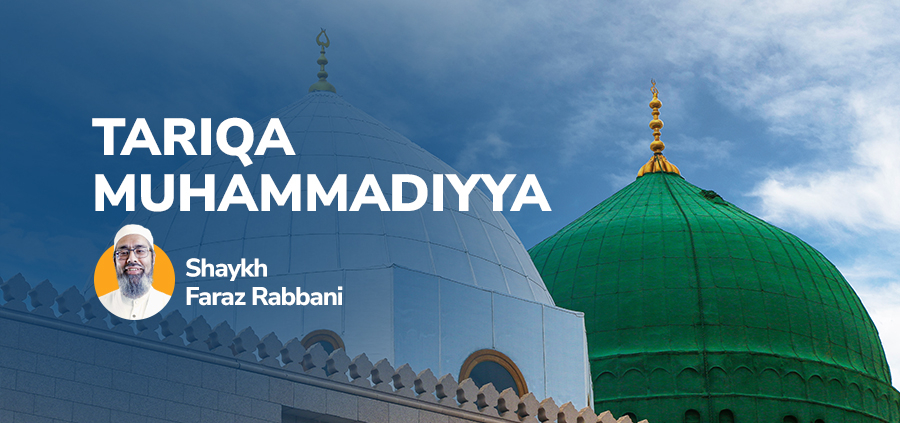Tariqa Muhammadiyya Article Six: The Praise and Blame of Good and Bad Character
In the name of Allah, Most Beneficent, Most Merciful.
Taqwa is the concern within one to refrain from what is displeasing to Allah and preserve what is pleasing to Him. It manifests itself upon our limbs, but it begins from the heart. This article series—based upon Shaykh Faraz Rabbani’s course “The Path of Muhammad: Birgivi’s Manual of Taqwa Explained” provides an overview of what Muslims must concern themselves with when seeking the attainment of taqwa. This article is about the blameworthiness of bad character and praiseworthiness of good character
The Praise and Blame of Good and Bad Character
One of the ways to leave blameworthy traits is to reflect on what has come in the Quran and hadiths about bad character. There are many reminders in the Quran of the woeful demise of people characterized by bad character. And in hadiths, too, we find much condemnation of bad character.
The Prophet (Allah bless him and give him peace) said, “There is no sin that is more grave in the sight of Allah than bad character. And why is it? Because the one who has bad character doesn’t leave one sin except they fall in another.”
“Good character melts errors as warm water melts ice. And bad character corrupts actions just as vinegar spoils honey.” [Tabarani; Bayhaqi]
Bad character is an indication of how one fundamentally is as a person. And repentance from a bad character is not only about feeling remorse about the action but also includes rectifying it. This means that to be true in your repentance, you must alter who you fundamentally are as a person.
While it is true that being balanced in character is desirable, it is only virtuous if it is free from ill intent and solely for the pleasure of Allah Most High. This is why “self-development” or “self-help” books are dangerous. For some people, it may be a form of arrogance acquisition under the guise of something beneficial.
When one has true praiseworthy virtues, they are free from harmful aims like showing off, conceit, pride, or arrogance. And all these virtues arise from the balanced traits of character. Balance in the capacity for reason is wisdom (حكمة). Balance in the capacity for anger is courage (شجاعة). Balance in the capacity for desire is dignified restraint (عفّة). When these three are together, justice (عدالة)—a fourth encompassing virtue—is found. It is the virtue of being in the right balance with yourself.
Striking the right balance with yourself entails keeping good company and being very watchful of how you spend your free time. Undoubtedly, everyone needs to take breaks, but never underestimate the harm of some of the idle things we tend to pursue. Taking a break doesn’t necessitate time being wasted. Instead, slowly discipline yourself by having routines of seeking knowledge and doing good actions.
Hadiths about Good Character
The Prophet’s (Allah bless him and give him peace) character was the greatest because it was untarnished by lowly aims and aspirations. His only concern was Allah Most High. The fleeting nature and paltriness of this life were of no concern to him.
He (Allah bless him and give him peace) said;
“Truly a servant reaches, through their good character, the greatest rank in paradise and the most noble of stations, despite being weak in their worship.”
“Shall I not tell you of the easiest acts of worship?” (To which the companions replied,) “‘Do tell us!” (He (Allah bless him and give him peace) replied) “Silence and good character. And truly a servant may descend through their bad character to the lowest pits of the pits of hell.”
“Allah does not make the form of someone good and their character good, and then feed them to the Fire.”
“I was only sent to perfect the most noble of characters.”
Attaining Good Character
The purpose of our religion is not to merely do things and complete ritual action, but instead, its purpose is to be good. Attaining good character causes the felicitous individual to become a true servant of Allah Most High. Good character is the reality of spirituality, an end in itself. It is leaving every lowly trait and upholding every noble quality.
Thus, it is incumbent upon you to:
(1) rid your heart of blameworthy traits; and
(2) adorn your heart with virtuous traits.
True spirituality is hard work and is not always about feeling good about yourself. So take this moment to sincerely commit yourself to do the hard work and bring about positive change.
And Allah is the Opener of hearts and all that is good.
[Shaykh] Faraz Rabbani
You can sign-up to this course here. Our offerings are always free of charge.
The Path of Muhammad: Birgivi’s Manual of Taqwa Explained
Shaykh Faraz Rabbani spent ten years studying with some of the leading scholars of recent times, first in Damascus, and then in Amman, Jordan. His teachers include the foremost theologian of recent times in Damascus, the late Shaykh Adib al-Kallas (may Allah have mercy on him), as well as his student Shaykh Hassan al-Hindi, one of the leading Hanafi fuqaha of the present age. He returned to Canada in 2007, where he founded SeekersGuidance in order to meet the urgent need to spread Islamic knowledge–both online and on the ground–in a reliable, relevant, inspiring, and accessible manner. He is the author of: Absolute Essentials of Islam: Faith, Prayer, and the Path of Salvation According to the Hanafi School (White Thread Press, 2004.) Since 2011, Shaykh Faraz has been named one of the 500 most influential Muslims by the Royal Islamic Strategic Studies Center.
